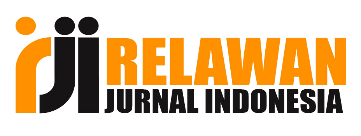Upaya Meningkatkan Hasil Belajar Siswa melalui Penerapan Model Pembelajaran Problem Based Learning (PBL) pada Materi Dasar-Dasar Pakan Ternak
Abstract
Penelitian yang berjudul “Meningkatkan Hasil Belajar Siswa Kelas X SMK Negeri 1 Jantho melalui Penerapan Model Pembelajaran Problem Based Learning (PBL) pada Materi Dasar-Dasar Pakan Ternak” bertujuan untuk mengetahui apakah penerapan model pembelajaran Problem Based Learning (PBL) dapat meningkatkan hasil belajar, aktivitas belajar dan bagaimanakah respon siswa terhadap penerapan model pembelajaran Problem Based Learning (PBL) pada materi pada Materi Dasar-Dasar Pakan Ternak. Penelitian ini merupakan penelitian tindakan kelas. Setting penelitian terdiri dari tempat, waktu penelitian dan siklus PTK, yang menjadi subjek penelitian ialah siswa kelas X yang berjumlah 27 siswa. Untuk mengetahui pengaruh penerapan model pembelajaran Problem Based Learning (PBL) tersebut dilakukan observasi terhadap keaktifan siswa, dan tanggapan siswa dari angket. Data yang diperoleh dari hasil pengamatan terhadap keaktifan siswa mencapai katagori baik berdasarkan kriteria yang telah ditetapkan. Dari tes evaluasi awal diperoleh nilai rata-rata kelas yaitu 46,25 dan ketuntasan kelas 0 %, pada hasil ulangan harian siklus pertama nilai rata-rata kelas mengalami peningkatan yaitu 69,70 dan ketuntasan kelas 48,15 %, pada siklus kedua nilai rata-rata kelas 88,20 dan ketuntasan kelas 96,30 %. Dari hasil angket tanggapan siswa diperoleh 93,14% siswa yang memberikan tanggapan positif terhadap penerapan model pembelajaran Problem Based Learning (PBL). Berdasarkan hasil penelitian dapat disimpulkan bahwa penerapan model pembelajaran inquiry training pada materi berempati dan menghormati di kelas X SMK Negeri 1 Jantho dapat meningkatkan hasil belajar siswa dan respon siswa sangat baik
Downloads
Published
How to Cite
Issue
Section
License
Copyright (c) 2025 Hasnawati (Author)

This work is licensed under a Creative Commons Attribution 4.0 International License.
Copyright and License Agreement
- The author(s) owns the copyright and other proprietary rights associated with the article.
- The author(s) has the right and is permitted to use the substance of the article for the author's subsequent works, including for the purposes of lectures and books.
- The author(s) grants the first publication rights to the journal under a Creative Commons License (CC BY 4.0).
Creative Commons CC BY 4.0 License Statement
You are free to:
- Share — copy and redistribute the material in any medium or format;
- Adapt — remix, transform, and build upon the material
for any purpose, even commercially.
The licensor cannot revoke these freedoms as long as you follow the license terms.
- Attribution — You must give appropriate credit, provide a link to the license, and indicate if changes were made. You may do so in any reasonable manner, but not in any way that suggests the licensor endorses you or your use.
- No additional restrictions — You may not apply legal terms or technological measures that legally restrict others from doing anything the license permits.











